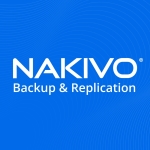What is our primary use case?
Azure Backup is best suited for people who have their workloads on Azure. 80% of the use case is for people using compute instances or compute capacity on Azure.
There is a smaller use case for people who want scalable storage, which some can scale up and down, even though their workloads may not be in Azure and maybe a data center workload instead. Azure backup is a good solution if one needs scalable workloads on a cost-effective platform. Those are two primary use cases.
What is most valuable?
Azure lets you classify your backups as per the user, such as if they are archival backups or if it is something you need to use on a more frequent basis. You can select the tiering for your backup and manage your cost. It's not one single monolithic cost. You can choose your backup storage requirement and choose your storage tiering. And then, of course, you can get a more cost-effective backup at the end of the day. As you move into more cloud-native solutions, which means cloud-native applications developed on and for the cloud, your allocation or backup configuration becomes much more seamless. Moreover, the integrity of your backups is retained without you needing to manually check them. And then configuring your backups integrating your backups is almost seamless for your cloud-native application.
What needs improvement?
It still does not have a lot of customization, especially if your workloads are not in Azure. More and more customers are looking at hybrid solutions when they have something on Azure, a data center, and a private cloud. Your backup solution may not be customizable enough to suit your requirements when you have a hybrid environment. If it's completely Azure, Azure Backup is an excellent solution. However, there are better alternatives when discussing a multi-cloud or hybrid-cloud solution.
In addition, Though not in my personal opinion or experience, certain security and compliance questions have been raised around Azure, and that's where Azure needs to buckle down as well.
For how long have I used the solution?
I've worked with the solution for five to six years.
What do I think about the stability of the solution?
The product is stable. We have not seen any concerns or issues with stability.
What do I think about the scalability of the solution?
There are some medium-based clients, but the bulk of our clients are enterprise clients.
How are customer service and support?
Azure's technical support is good, but there is always room for improvement. It's much better than its competitors.
How would you rate customer service and support?
How was the initial setup?
Azure Backup is pretty simple to deploy if your applications are hosted on Azure. And the more cloud-native services you use, the easier it is to deploy. The closer you are to Azure's native environment, the easier it gets. It's almost seamless. It's just about checking a few boxes, and it's done. The complexities come in when you are in a hybrid environment.
The time taken to deploy the solution depends upon your backup policy. At most, deploying would not take more than a few minutes. Configuring the backup policies will take time, but actual deployment takes minutes.
Azure Backup is simpler to maintain compared to an on-prem backup. It's a managed service from Azure. With a backup solution, the important thing is to check your daily, weekly, and monthly schedule and the integrity of backups. That's the most time-consuming part, but all that gets highly automated in Azure.
What's my experience with pricing, setup cost, and licensing?
Azure Backup can be expensive if you are not vigilant about your storage steering. You need to monitor your usage. After your backup, your data goes into your storage solution, and the storage can escalate. It should be actively monitored and managed. Otherwise, Azure Backup can get very pricey. But the solution can be very cost-effective if you are smart and have the right governance. Looking at the long term and your usage fluctuates over time, it becomes a much more cost-effective option.
What other advice do I have?
With Azure backup, there is an on-premises option using your Azure Stack, but my experience on that is limited since I deal with Azure cloud-based backups.
If anyone plans to adopt Azure Backup, first understand your backup requirements. Especially if you operate in a multi-regional environment if your workloads are spread over multiple regions and subscriptions, it makes sense to have a cloud-based backup on Azure, especially if you operate in a multi-regional environment. That helps you scale out as required and simplifies the deployment of web-based or Azure-native applications. The word of caution is to be vigilant about your backup consumption and be proactive in choosing the right tier so that it remains cost-effective for you.
I rate Azure Backup an eight out of ten. The solution is great with cloud-native applications. But if you go into a hybrid environment or a multi-cloud environment, that's when there are complexities. Moreover, you need to be vigilant about what you're using. Otherwise, the cost can spiral out of control.
Which deployment model are you using for this solution?
Public Cloud
If public cloud, private cloud, or hybrid cloud, which cloud provider do you use?
Microsoft Azure
Disclosure: My company has a business relationship with this vendor other than being a customer. MSP






















